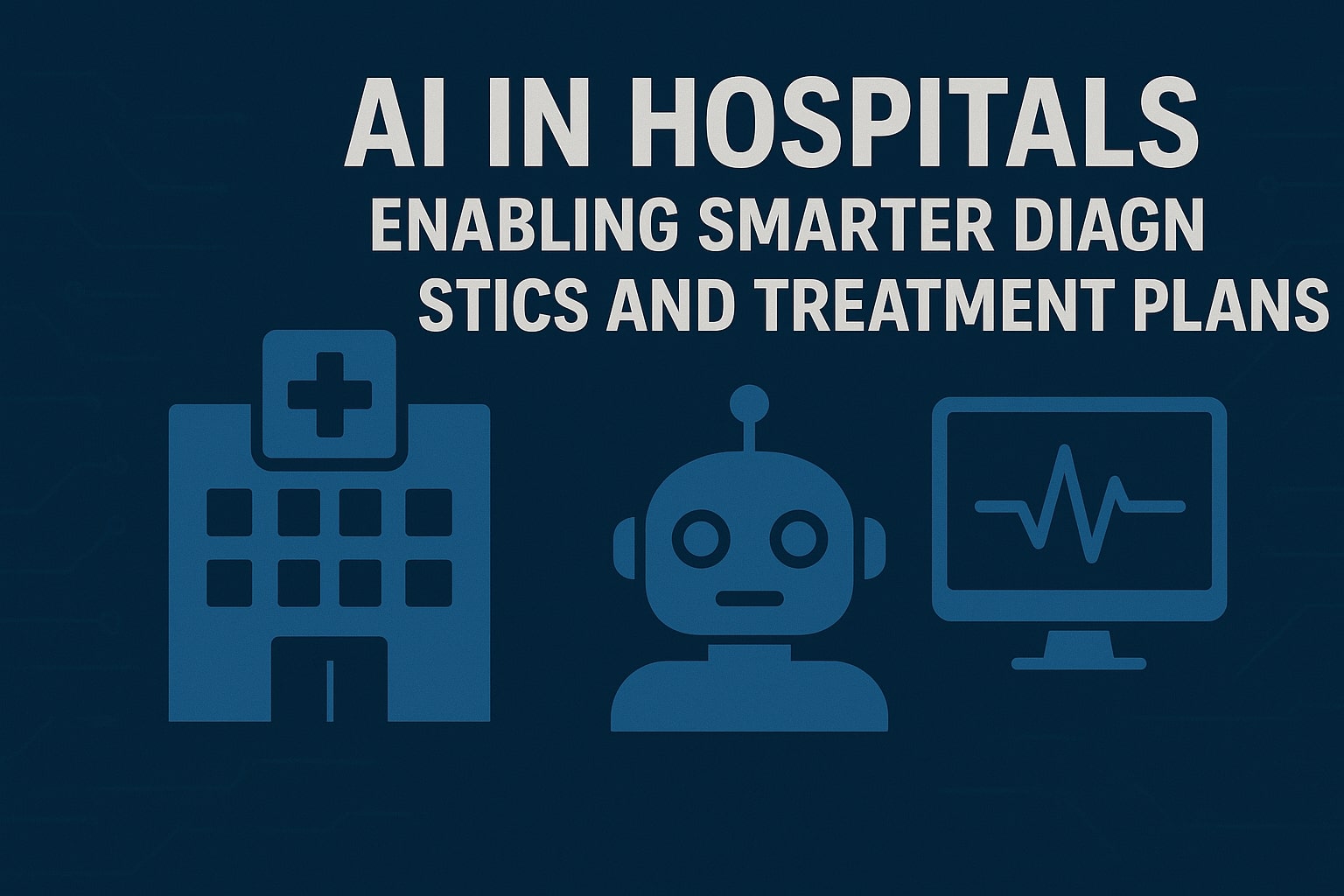Within modern hospitals, AI in healthcare is moving from theory to practical application, assisting doctors in making smarter, faster, and more accurate decisions. From radiology to the ICU, AI enhances diagnostics and personalizes treatment, improving patient outcomes. Here’s how hospitals are leveraging AI.
1. AI as a Diagnostic Co-Pilot
The most established use of AI in hospitals is medical imaging. AI algorithms act as a second set of eyes for radiologists, reducing errors and speeding up diagnoses.
- How it works: AI software analyzes CT scans, MRIs, X-rays, and mammograms in seconds, flagging suspicious areas for review. Critical cases like strokes or hemorrhages are prioritized. Radiology Today on AI diagnostics
- Impact: Increases detection rates of conditions like breast cancer and lung nodules without replacing radiologists.
2. Predictive Analytics for Patient Deterioration
AI in healthcare analyzes EHR data—vital signs, lab results, and notes—to predict patients at risk of deterioration.
- How it works: AI models detect subtle patterns indicating potential events like septic shock, cardiac arrest, or respiratory failure. Learn more about predictive AI in healthcare
- Impact: Early alerts allow life-saving interventions, shifting care from reactive to proactive.
3. Optimizing Treatment Plans and Precision Medicine
AI enables personalized treatment plans based on genetics, medical history, and current research.
- How it works: AI evaluates tumor genetics and research to suggest optimal drug combinations or radiation strategies. Nature: AI in precision oncology
- Impact: Ensures the right treatment reaches the right patient at the right time, minimizing side effects.
4. Automating Administrative Burden
AI reduces clinician burnout by automating repetitive tasks.
- How it works: NLP transcribes doctor-patient conversations, auto-populates EHRs, automates scheduling, bed management, and inventory. Explore AI healthcare automation
- Impact: More face-to-face time with patients, better job satisfaction, and reduced administrative stress.
5. Robotics and Surgery
AI enhances robotic-assisted surgery with real-time guidance and pre-op planning.
- How it works: AI analyzes scans to plan safe surgical approaches and alerts surgeons during procedures.
- Impact: Improves surgical precision, reduces complications, and shortens recovery times.
The Future: Integrated Clinical Decision Support
Future hospital dashboards will provide a unified AI-assisted view: prioritized diagnostic insights, predictive risk scores, and treatment recommendations before the clinician even enters the room. Read more on the future of AI in hospitals
Challenges to Adoption
High implementation costs, integration hurdles, unclear ROI, and clinician trust remain challenges. Nevertheless, AI in healthcare is becoming essential infrastructure, enabling smarter, more predictive, personalized, and precise care. FDA guidance on AI in hospitals
